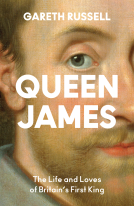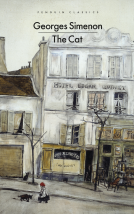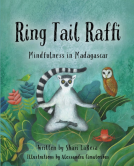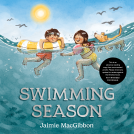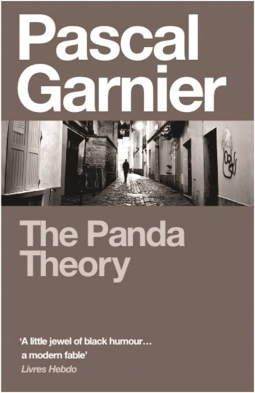
The Panda Theory
by Pascal Garnier
This title was previously available on NetGalley and is now archived.
Send NetGalley books directly to your Kindle or Kindle app
1
To read on a Kindle or Kindle app, please add kindle@netgalley.com as an approved email address to receive files in your Amazon account. Click here for step-by-step instructions.
2
Also find your Kindle email address within your Amazon account, and enter it here.
Pub Date 26 Mar 2012 | Archive Date 24 Sep 2015
Description
Advance Praise
'This often bleak, often funny and never predictable narrative is written in a precise style. Garnier combines a sense of the surreal with a ruthless wit.' --The Observer
A quick, sharp and devastating novel. --Stuart Evers, The Observer
Available Editions
| EDITION | Paperback |
| ISBN | 9781906040420 |
| PRICE | £6.99 (GBP) |
Average rating from 18 members
Featured Reviews
 Educator 211653
Educator 211653
Thank you Net Galley. A beautifully written and well translated novel, that expertly combines black comedy with noir. The book is a short but satisfying read and delivers a punch at the end. Hope there are more translations of his books.
 Trevor W, Reviewer
Trevor W, Reviewer
Stranger comes into town, makes friends with everyone, and then strange things start to happen. This may be an old premise for a story, but it is a good one and told deftly in this novel. The French scenery, towns and atmosphere comes across really well, and though there isn't much character development there is enough to drive the story along.
The version I read was a translation from the original French, but even so the style and tome of the writing was very lyrical. A good read.
 Deborah C, Reviewer
Deborah C, Reviewer
In the Bible, Gabriel is God's messenger, and in Pascal Garnier's The Panda Theory, his namesake delivers a bleak message indeed:
"Happiness is a calamity you can never recover from. As soon as you catch a glimpse of it, the door slams shut and you spend the rest of your life bitterly regretting what is no more."
Through a series of flashbacks, we learn about the experiences in Gabriel's life which have shaped this philosophy; those flashbacks come more quickly the closer we come to the book's classic noir ending, building the tension until the past and present collide in a sudden burst of violence.
At times, Gabriel's thoughts sound like those of an amoral psychopath: "It was a day to kill someone for no reason"; he cannot "feel the difference between good and evil." However, he also believes that he performs a "service," whether cooking meals for a bistro owner whose wife is in a coma, paying the hotel bill of an abandoned girlfriend, or offering companionship to a lonely hotel receptionist, and it is this desire to be of service which is the key to Gabriel's character and ultimately horrific actions. Like the disturbed mother who kills her children because she believes they will be better off living with God in heaven, Gabriel believes he is helping relieve his new friends of the burdens imposed by an uncaring universe: José and his family are spared from watching the mother slowly waste away; Rita no longer has to prostitute herself for money or drugs. That his approach, though twisted, is logical is borne out by Madeleine, who escapes drowning at Gabriel's hand only to die by her own:
"There's been an accident."
"Is it serious?"
"Someone's been killed. A woman. If she had wanted to kill herself, she couldn't have done a better job. It's a straight road. Either that or she fell asleep at the wheel. . . . People drive like idiots. They drive at top speed and to go where?"
"To an island."
"Sorry?"
"Nothing, I was just saying."
The Panda Theory rewards reflection, leading me to raise my rating from 3.5 to 4 stars after writing this review. I recommend this book, and this author, to those who want more from their crime fiction than entertainment or fleeting thrills.
I received a free copy of The Panda Theory through NetGalley in exchange for an honest review.
 Nikhil S, Reviewer
Nikhil S, Reviewer
"He was sitting alone at the end of a bench on a deserted railway platform. Above him, a tangle of metal girders merged into the gloom. It was the station of a small Breton town on a Sunday in October - a completely nondescript town, but certainly Brittany, the interior anyway. The sea was far away, its presence unimaginable. There was nothing picturesque here. A faint odour of manure hung in the air". So begins the life of Gabriel.
When I picked The Panda Theory up I had no idea who the author is and what the novel is about. It is nice to discover once in a while an (hitherto) unknown author, without setting your expectations high or low with the push or burden of the known. Such a process is fraught with as much pleasure as disappointment. With Panda, it was disappointment for me.
Gabriel is someone who keeps getting flashbacks of his life that was with his family. He is drifting in and out of people's lives in a French town and helps strangers with emotional and monetary support. These people get to trust him, but only to be betrayed by him in the end. That once a crest of happiness is reached one cannot ever be happier than that and hence life needs to end there and then itself is the philosophy he believes in. But the problem is that he believes in this for others, not just for himself.
José and Gabriel get along well in his bistro and Gabriel finds new friends amongst Mandeleine and Rita. He helps Marc by buying out his sax; helps Rita by giving her money when Marc dumps her; gives a lending hand to an old lady at a vending machine; praises Adamo's antipasti; and after declining offers to make love to Mandeleine several times, gives in one time and makes her happy. He is a do-gooder and goes out of his way to be there for everyone.
However the novel takes a sudden turn when Gabriel, the angel, starts killing people erratically. A trail of dead ends the novel on a supposedly shocked readership, trying to leave mysteries unsolved and open a chasm of the dark. But it fails to do any of that. The mysterious ways of his neither make one wanting to re-read the passages of his personal grief, nor do they leave any lasting effect of melancholia about the past or disappointments about the future. The characters disappear and you don't feel like having them back. They might as well be alive or kicking or feasting or doing anything else, and it wouldn't have made an ounce of a difference. There is no sense of loss you feel when it's over. It was as if it never begun. The unexpected violence, what was it for? I wonder for a second and then give up on the thinking and take to writing this review.
If you happen to read reviews on Amazon of Panda, you will realize that the words pointless & meaningless have been used a total of five times till today. Are the reviewers copying each other and draw out a running theme to create their own review? Are they written by the same reviewer but in longer / shorter / different / helpful / unhelpful ways?
Pascal Garnier may be a writer of noir and much appreciated, but Panda is definitely not the one you would like to start with. Go somewhere else.
 Mandy J, Reviewer
Mandy J, Reviewer
One day a stranger arrives in a small French town. Quiet and gentle, he soon impresses the inhabitants with his kindness and helpfulness. But gradually we learn, in a series of flashbacks, that Gabriel is hiding a dark secret and this bleak and unpredictable book leads inexorably to a devastating dénouement. Another small triumph from Pascal Garnier.
 John L, Reviewer
John L, Reviewer
This is my second Garnier, and while not quite as satisfactory as the first is equally dark, locating the mismatch of humanity's hopes and dreams and reality in a rural place. Gabriel is flitting around a Breton village, and alighting on a very rum selection of people in need of help – people he seems perfectly able to spend time with, dip into his wallet for, and so on, from the lonely hotel worker who tries to befriend him most, to the local bistro proprietor for whom he immediately starts cooking. But is the saintly name best suited for the man, about whom nobody ever learns much? Whatever Garnier had in his output, he certainly had the talent to make short sharp novels with a great kick – a suitably rural location, pessimism to match and drifting, lonely-seeming characters. But he also had the nous to judge his stories perfectly – works like this seem so incredibly pointed and obvious, especially when the plot is reduced to its bare bones, but they remain eminently readable. His flavour seems one of a kind, and the populist approach he uses to bring serious discussions about humanity to the page is something else. Like my first encounter with Garnier, Boxes, this is easily recommendable.
Readers who liked this book also liked:
Philip Hoare
Arts & Photography, Biographies & Memoirs, Nonfiction (Adult)
Pirkko Saisio
Biographies & Memoirs, General Fiction (Adult), Literary Fiction
Carine Laforest;
Children's Fiction

